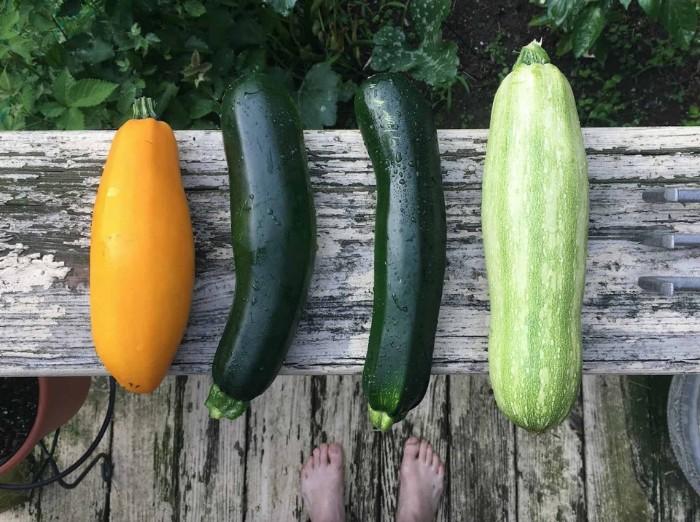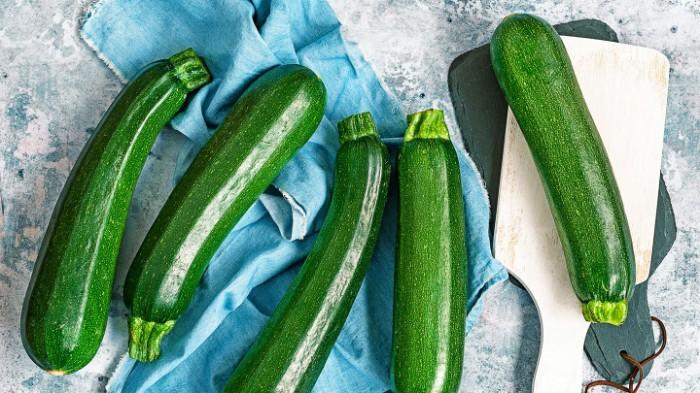Are you looking for an easy way to sneak more vegetables into your meals? If so, zucchini is the perfect addition! Not only is it extremely versatile in terms of cooking methods and ingredient combinations, but it also boasts plenty of health benefits.
This blog post will explore why adding zucchini to your diet can improve your overall health. We'll review what makes this interesting squash special nutritionally and explore some recipes featuring the humble vegetable as a star ingredient.
So get ready to learn all about one of the summer's most beloved produce items – let's get started.
Overview of Zucchini and its nutritional benefits
Zucchini is a summer squash that belongs to the Cucurbitaceae family and is closely related to cucumbers. Despite its classification as a vegetable, zucchini is a fruit because it develops from the plant's flower. Zucchini has a mild flavor and can be steamed, boiled, grilled, or eaten raw. It is a versatile ingredient that can be added to salads, sandwiches, casseroles, and other dishes.
Zucchini is an excellent source of vitamins and minerals. It contains vitamins C and A, potassium, magnesium, and dietary fiber. The antioxidants in zucchini help protect the body from damage caused by free radicals and can help reduce the risk of developing chronic diseases. Zucchini is also low in calories, making it a great choice for weight management.
Zucchini is packed with essential nutrients that provide multiple health benefits. It can help improve digestion, boost immunity, reduce inflammation, and protect against cancer. Zucchini is also a good source of energy due to its high content of B vitamins, which are important for metabolism. Additionally, zucchini is a great source of dietary fiber, which can help with weight loss and reduce cholesterol levels.
How to Incorporate Zucchini into Your Diet

Zucchini is a type of summer squash that is low in calories, fiber, vitamins, and minerals. It can be used as an ingredient for many dishes or eaten raw as part of a healthy diet. Here are some tips on how to incorporate zucchini into your daily meals:
1. Add zucchini noodles to soups and stews. Zoodles (zucchini noodles) are a great way to add extra vegetables to your meal without adding too many carbs or calories. They can be used instead of regular pasta or as a side dish.
2. Bake zucchini in bread and muffins. Zucchini adds moisture and nutrients to baked goods, making them much healthier than regular store-bought items.
3. Use zucchini as a pizza topping or in calzones. Zucchini slices make a tasty topping for pizzas and calzones, adding flavor and nutrition without all the extra carbs.
4. Create a zucchini stir-fry. Zucchini adds texture and flavor to your favorite stir-fry recipes, whether the main ingredient or just one of many additions.
5. Grill zucchini in slices or cubes. Grilled zucchini makes a delicious side dish or addition to your favorite salads.
6. Mix zucchini into smoothies and shakes. Zucchini adds a subtle flavor and texture to smoothies, making them much more nutritious.
Ways to prepare Zucchini
Zucchini is an incredibly versatile vegetable with a mild flavor that lends well to many different preparations. Roasting zucchini helps to bring out its natural sweetness while steaming it retains more of its nutritional value. Baking it in the oven creates a delicious side dish or topping for dishes like pizza. Zucchini can also be eaten raw, in salads, or as a snack.
No matter how you prepare it, zucchini offers several health benefits. One of the most important benefits is that it is low in calories and high in fiber. This makes it an ideal choice for anyone looking to manage their weight.
Additionally, zucchini is rich in vitamins A and C and other essential nutrients like magnesium, potassium, and folate. It is also a good source of antioxidants which help to protect the body from free radical damage.
Incorporating zucchini into your diet can add more nutrition and flavor to your meals. It is a great addition to many dishes and can be prepared in various ways. With its wide range of health benefits, zucchini is an excellent choice for anyone seeking a healthier lifestyle.
Tips for growing your zucchini in a garden or container

Zucchini is a nutritional powerhouse vegetable. It has many health benefits, including being low in calories and fat, high in fiber, packed with essential vitamins and minerals like potassium and magnesium, and an excellent source of antioxidants. Growing your zucchini is easy and can help you reap the nutritional benefits when it's harvested from your backyard.
You can grow zucchini in a garden or container, but there are a few basic tips to keep in mind to ensure success.
- Select a sunny spot with well-draining soil free from weeds and debris.
- Add compost or aged manure before planting to ensure the soil is rich and fertile.
- Plant zucchini seeds directly into the ground once the risk of frost has passed. If you are planting in a container, use high-quality organic potting soil and ensure it is big enough for the plant to grow freely.
- Water your plants regularly, ensuring they stay moist but not soggy.
- Feed your plants a balanced fertilizer once per month during the growing season.
- Check for pests and diseases regularly, and take appropriate action if necessary.
Following these tips will help you get the most out of growing zucchini in your backyard to enjoy its nutritional benefits.
FAQs
What does zucchini do for your body?
Incidentally, zucchini is an incredibly nutritious vegetable. It has many health benefits, including being low in calories and fat, high in fiber, packed with essential vitamins and minerals like potassium and magnesium, and an excellent source of antioxidants. Eating zucchini regularly improves digestion and the absorption of nutrients from other foods.
How do you prepare zucchini?
Zucchini is an incredibly versatile vegetable with a mild flavor that lends well to many different preparations. Roasting zucchini helps to bring out its natural sweetness while steaming it retains more of its nutritional value. Baking it in the oven creates a delicious side dish or topping for dishes like pizza. Zucchini can also be eaten raw, in salads, or as a snack.
What are the benefits of growing zucchini at home?
Growing zucchini at home has many benefits. It is convenient- Growing your zucchini means you have a local and easy source of fresh produce.
Conclusion
Zucchini has many benefits, from its nutritional qualities to its versatility in the kitchen. Not to mention, zucchini is incredibly easy to grow and maintain for those looking to get hands-on with their food. When we consider the facts, it's easy to see why zucchini should be a part of every diet. Its low calories and high nutrition content can be a great way to replace carb-heavy options with something that tastes great and is good for you.







